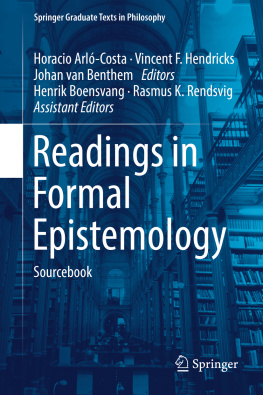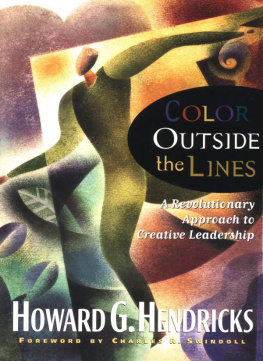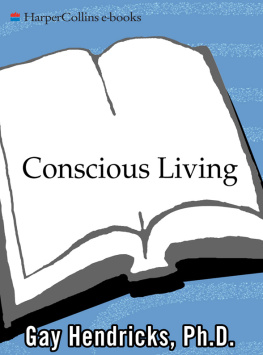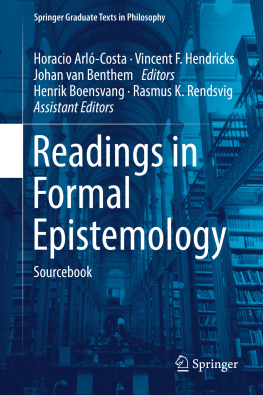Introduction
Formal epistemology is a recent field of study in formal philosophy dating back only a couple of decades or so (Hendricks ). The point of departure of this essay is rooted in two philosophically fundamental and interrelated notions central to formal epistemology;
Agents may be individuals, or they may be groups of individuals working together. In each of the sections that follow, assumptions are made concerning the relevant features of the agents at issue. For example, such relevant features may include the agents beliefs about its environment, its desires concerning various possibilities, the methods it employs in learning about its environment, and the strategies it adopts in its interactions with other agents in its environment. Fixing these features serves to bound investigations concerning interactions between the agent and its environment. The agents beliefs and desires are assumed to inform its decisions. Methods employed by the agent for the purposes of learning are assumed to track or approximate or converge upon the facts of the agents environment. Strategies adopted by the agent are assumed to be effective in some sense.
In what follows is an attempt to locate predominant paradigms in formal epistemology e.g., probability theory, belief revision theory, decision theory, logics of knowledge and belief and finally interactive epistemology within the framework of agency and interaction.
Probability
Probabilities are very useful in formal epistemology. They are used to measure key epistemic components like belief and degrees thereof, the strength of expectations and predictions, may be used to describe actual occurrent frequencies in nature or in the agents environment and of course probabilities play a paramount in accounting for notions of (Bayesian) confirmation (Earman ). Current cognitive models apply probabilities to represent aggregated experience in tasks involving language acquisition, problem solving and inductive learning, conditionalization and updating beliefs and scientific hypotheses.
What sorts of internal states are essential to the agents representation of its environment? Various doxastic notions e.g., according to which the agent simply believes or is certain of propositions, in contrast to believing the proposition to some degree, are a traditional interest within mainstream epistemology. Some philosophers, e.g. Jeffrey () for more sophisticated versions of probabilism.
Following Levi () to consider indeterminate probabilities, either in the form of interval-valued measures or sets of traditional measures, in representing rational credences.
Belief Change
As already hinted, some probability theorists tend to think that belief, as opposed to knowledge, may be good enough for action, deliberation and decision. Thus beliefs may suffice as they can serve important epistemic purposes while holding the information, expectations and conjectures that agents act on. Beliefs may be used for making creative leaps beyond what is logically implied by available information, evidence or knowledge and are crucial in agent interaction models representing what agents think about moves, strategies, payoffs and beliefs of other agents and what agent rationality amounts to Finally, beliefs and belief revision are prime vehicles for understanding the mechanism of learning by trial-and-error, one of the main motors of scientific inquiry in general.
Initially, an agent has beliefs about the environment with which it interacts. Sometimes these interactions are such that the agent, on pain of irrationality, must revise its beliefs. The classic example is that of a scientific agent who has beliefs about the world that might need to be revised in light of new data. The study of this sort of example has a long history in the philosophy of science, where it is often discussed at a relatively informal level in connection with topics such as underdetermination. In the context of formal epistemology, the study of belief revision has been generalized to include various sorts of epistemic agents. Questions such as the following suggest the range of theoretical options that are available in connection with such investigations:
How are the potential belief states to be interpreted? One might take the belief states to represent partial beliefs; e.g., the agent has a certain degree of belief in proposition P . Alternatively, one might be interested in states of full belief, expectation or plain belief; e.g., the agent fully believes P , expects P , etc. Further refinements have been considered. For example, one might consider those full beliefs with respect to which the agent manifests some level of awareness; e.g., I am aware of my belief that I am presently writing the words of this sentence. In contrast to a focus on conscious beliefs, one might consider those propositions that the agent is committed to fully believing; e.g., all of those propositions that are deducible from my conscious beliefs.
How are the potential belief states to be represented? The answers to this question depend, at least to some extent, on how the previous question is answered. For example, if partial beliefs are the issue, then probability distributions might be taken as the basis for the representation so that a potential belief state is represented as a probability measure over the possible states of nature. On the other hand, if the problem is the representation of commitments to full belief (expectation, plain belief), then one might specify a suitably formalized language and represent each potential belief state as a theory formulated over the given language so that membership in the theory indicates full belief.
How are revisions interpreted? If credal states are the concern, then modifications of the credal state might be understood in terms of something like conditionalization. The interested reader is urged to consult (Halpern ) and the economists study of rational choice functions. Finally, it is worth noting that where both partial and full beliefs are considered, there may be significant dependencies between the modification of these two sorts of belief states. For example, if the credal judgments of rational agents are a function of their judgments of full belief, as some philosophers assume, then changes to the latter may result in changes to the former.
There are other alternative interpretations of doxastic change. Spohn have considered change from the point of view of entire epistemic states rather than mere beliefs in terms of ranking functions and plausibility representations (Spohn ).
Decision Theory
An agent interacts with its environment through the choices it makes. Choice presupposes alternatives, and a theory of rational choice should, at least, distinguish some of the available alternatives as admissible. As an example, consider those accounts of rational choice that are built on the concept of preference. One such account assumes that the agent has complete and transitive preferences over the set of available alternatives. Those alternatives that are optimal with respect to the given preference ranking are taken as admissible. This abstract preference-based account says nothing about the way in which preferences are informed by the agents beliefs about its environment. Subjective expected utility theory [SEU], which is at the center of modern-day decision theory, provides significantly more detail than the abstract theory of preference optimization. SEU assumes that alternatives are acts, which, following Savages classic formulation of SEU in Savage () on utility, Savage provides conditions on the agents preferences over acts that guarantee the existence of a probability measure p and a utility function u such that the agents preferences can be regarded as if they were the result of maximizing utility u with respect to probability p . According to the intended interpretation, the probability measure p represents the agents degrees of belief concerning the possible states and the utility function u represents the extent to which the agent values the possible consequences.











